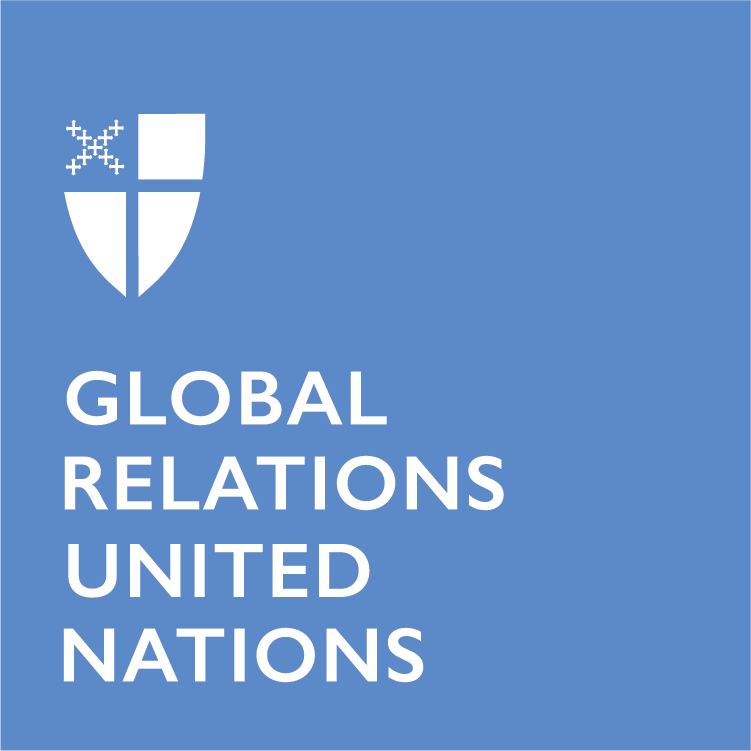Today is Ash Wednesday, one of the most sacred holy days in the Christian calendar, one that calls us to reflect and lament as we contemplate, over the next 40 days of Lent, Jesus’ act of compassion that relieved us of our sorry, sinful state. As it happens, this Lenten lamentation coincides this year with an earthly lamentation, as we contemplate the status of one-half of humanity.
In just a few days, New York City’s neighborhoods east of Grand Central Station, ringing the United Nations (UN) headquarters along the East River, will flood with foot traffic with the arrival of nearly 9,000 participants for the 63rd session of the annual United Nations Commission on the Status of Women (UNCSW). Each year, UNCSW – the second largest meeting at UN headquarters, after the General Assembly opening each September – attracts these masses who come to reflect on the status of women and girls around the world. Members of governments, UN entities and civil society alike attend the official two-week UNCSW meeting and hundreds of side and parallel events, all focused around a priority theme.[i] The goal? To take stock of the status of women and girls worldwide on this theme, and to establish agreed conclusions that advance a two-pronged objective: empowering women and girls, and achieving gender equality.
As they have for decades, Anglicans and Episcopalians will join that pilgrimage and that dialogue – as visiting members of government delegations to UNCSW, as representatives from non-governmental organizations, as delegates representing the Anglican Communion and The Episcopal Church, as educators, students, ministers, activists, networkers and religious leaders. They may be visiting with their Episcopal women’s group or youth group, or simply coming on their own. As girls, teens, moms, professionals, grandmothers, sisters, wives and elders. As men and boys, allies and witnesses. They will join local Anglicans and Episcopalians whose work, passion or life circumstances locate them in New York City, as UN staff, government representatives, local clergy or lay people, representatives of non-governmental organizations or simply as metropolitan New Yorkers.
Factoring in all these different groups, our combined Anglican/Episcopal presence at UNCSW is impossible to count. But even if it can’t be counted, it does count.
It counts, because Anglican and Episcopal women and girls, and their families, are part of the subject of the dialogue. This year’s theme focuses on “Social protection systems, access to public services and sustainable infrastructure for gender equality and the empowerment of women and girls”. As recent preliminary regional meetings and expert symposia revealed, the global dialogue about to take place will demonstrate the ways in which women can become impoverished in their elder years because their years of labor in the informal work economy, or their family caretaking responsibilities, did not engender formal workplace benefits like pensions or social security. It will illustrate how lack of access to gender-specific sanitation facilities prevents girls from going to school, and thus from attaining the education they need for a better life for themselves and their families. It will expose many other ways in which social benefits, vital to sustain women in the vulnerable stages of their lives, are not equally accessed by them – or even, not at all – compared to men. We are all poorer, as a result.
It also counts because Anglicans and Episcopalians will join that dialogue. Over the two weeks of UNCSW, many of them will bear witness to these realities through their own true stories. They will lament and call for change. Their voices are echoed in the collective cry for action in the Presiding Bishop’s written statement submitted to UNCSW last October, calling for three priority actions to correct these imbalances: 1) implement gender-responsive solutions to close the gaps in social protection systems, public services and sustainable infrastructure, 2) prioritize marginalized groups of women and girls in extending social protections, public services and sustainable infrastructure and 3) promote gender equality education and practices and eradicate gender-based violence.
You are invited to meet some of these women and hear their stories via this blog over the next few weeks. You will discover how their lives reveal the importance of this year’s theme, and why this compelled them to participate in UNCSW. You are invited to join them in prayer and to be the active change agent that shifts women and girls to their rightful, more equal place in our global society. And you are invited to join your story to theirs, by contacting us in this blog space or by contributing via social media at #EpiscopalCSW, #EpiscopalUN and #CSW63.
The Ash Wednesday liturgy reminds us: “Remember you are dust, and to dust you shall return.” We also know that in the in-between time, God calls each of us to life in all its fullness, and to love and work to better the lives of our neighbors, especially those who risk being left behind. May our God who knows all, sees all and hears all, gather up in the endless arms of love our sacred stories, our beloved story-tellers and each of us, that we may share, lament and act as one, in the name of Christ who saved us all.
[i] Since 1995, these themes are based on the 12 critical areas of concern found in the Beijing Declaration and Platform for Action, the foundational text adopted at the Fourth World Conference for Women in Beijing, China.
